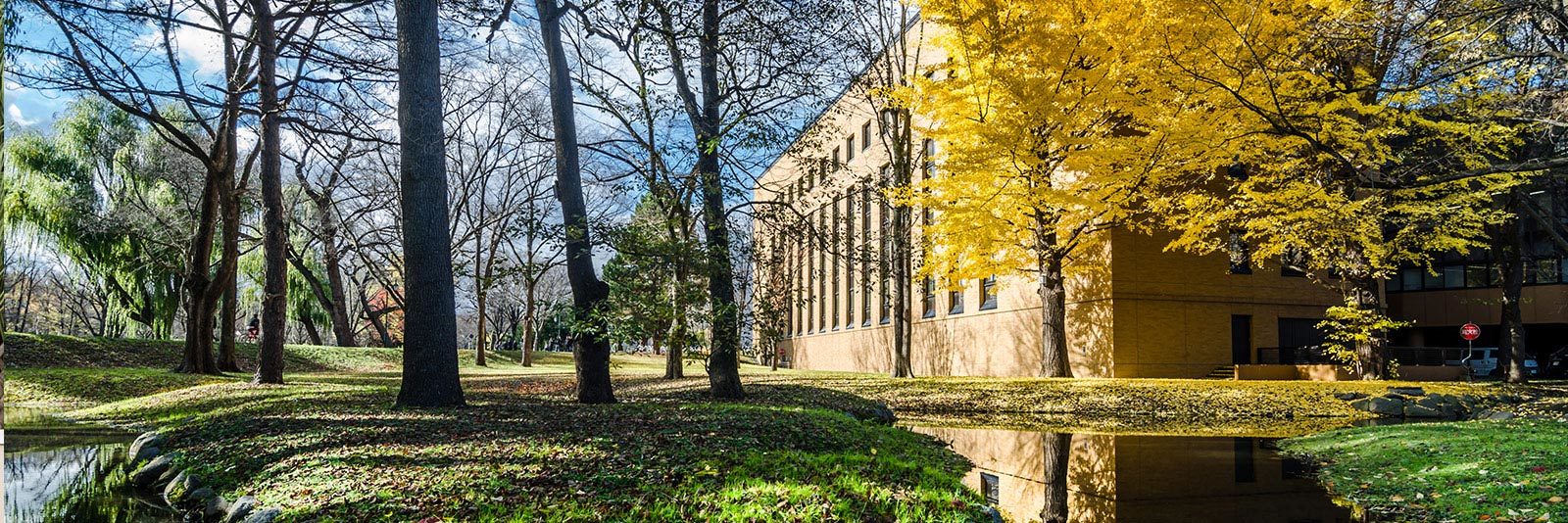- it Change Region
- Global Site
- Casa
- Nikon BioImaging Centers
- Hokkaido University

Centro di imaging Nikon
Hokkaido University
Nikon Imaging Center at Hokkaido University (NIC@HU) is a facility for novel biological microscopy available to researchers both in Hokkaido University and throughout Japan.
The NIC@HU was established in collaboration with Nikon Instec (Nikon Solutions Co., Ltd.) and is further supported by the following companies:
Andor Technology, Chroma Technology, Chuo Precision Industrial Corporation, Goryo Chemical, Hamamatsu Photonics, JASCO, Thermo Fisher Scientific (Life technologies, Invitrogen or Molecular Probes), Nippon Roper, Opto-Line (supplied for optical filters by Semrock), Promega, System Brain, Solution Systems (supplied for deconvolution software "Huygens" made by Scientific Volume Imaging), Tokai Hit, Yokogawa Electric, Seiko Tec (supplied for Imaging Analysis Software "AIVIA").
There are currently ten Nikon Imaging Centers worldwide (as of 15 October 2020): Harvard Medical School (NIC@HMS), University of Heidelberg (NIC@HD), Hokkaido University (NIC@HU), Singapore Bioimaging Consortium (NIC@SBIC), Curie Institut (NIMCE), Northwestern University (NIC@NU), King's College London (NIC@KCL), Fondazione Istituto Italiano di Tecnologia (NIC@IIT), UC San Diego (NIC@UCSD), and Osaka University (NIC@OU).
NIC@HU is finished for endowed chair and funded research departments at September 2011 and started to belong to Research Support Department at institute at April 2012.
Then we keep supporting to all researchers for our equipments.
The main activities of the NIC@HU are:
- Providing the latest microscopy and imaging devices for basic and advanced biological research.
- Training courses on bio-imaging from beginner to advanced levels.
- Support users to enable them to use microscopes correctly and with confidence. Also to ensure optimal setup and data analysis for the relevant experiment.
- Develop new microscope setups and imaging techniques in response to feedback and ideas from users of NIC@HU.
Contatto
NIC Director
Hideharu Mikami (Ph.D.)
Facility Manager
email hidden; JavaScript is required
Address
Nikon Imaging CenterResearch Institute for Electronic Science
Hokkaido University
N20 W10, Kita-ku
Sapporo, Hokkaido
Japan, 001-0020
Website
Systems Available
N-SIM Super-Resolution with Eclipse Ti-E Inverted Microscope
Using high frequency Structured Illumination, the Nikon N-SIM can achieve image resolution of 85nm, which was previously considered impossible with optical microscopes. Temporal resolution of 0.6 sec/ frame enables super-resolution time-lapse imaging of dynamic live cell events.
A1Rsi with a Ti-E Inverted Microscope (2 systems)
The A1si is a powerful point scanning confocal microscope system suitable for a broad range of applications, particularly spectral resolution and rapid imaging. The A1R comes equipped with a unique hybrid scan head, incorporating both an ultra high-speed resonant scanner and a high-resolution galvano scanner, enabling simultaneous bleaching/photoactivation and acquisition. The enhanced spectral imaging capabilities feature acquisition of a 32-channel spectral image (512 x 512 pixels) with a single scan in 0.6 second. 512 x 32-pixel images can be captured at 24 fps.
Ti-E PFS Inverted Microscope System
The Eclipse Ti-E with Perfect Focus is Nikon's market leading inverted microscope system offering improved system speed, increased flexibility and efficient multi-mode microscopy as part of a fully-integrated microscope system that is ideal for high-end research and live cell imaging. Perfect Focus is Nikon's exclusive focus correction system that combats axial focus fluctuations in real time during long-term imaging investigations.
ECLIPSE Ti-E TIRF/FRAP
Combining TIRF and epifluorescence set-up for (live) imaging with a great variety of wavelengths, the Nikon TIRF system is an inverted and fully automated ECLIPSE Ti-E microscope with both widefield fluorescence and brightfield illumination and with objective TIRF illumination. + Existing copy for Ti-LAPP TIRF system.
- Casa
- Nikon BioImaging Centers
- Hokkaido University
